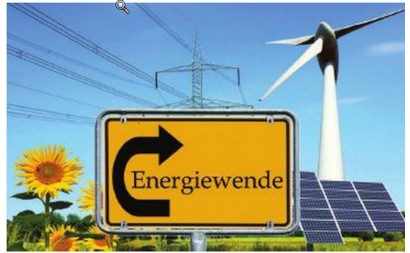Since 2010 Germany has paved its road to be a clean and sustainable country. The transition is supported by the Energiewede project, German for Energy transition, an ambitious plan to switch to a low carbon and environmentally sustainable economy. The main goals are the reductions of GHG of 80% by 2050; increase the energy supply from renewables of 60% by 2050. Additionally, Germany is closing all its nuclear plants; the phase out should be completed by 2022.
What have been the major impact of the Energy transition?
So far Germany has made huge progress, firstly, reducing by 27% its GHG emissions. Moreover, renewables have reached a significant 30% share in the German Energy mix. However, energy coming from carbon sources still accounts for 42.2% and for 14.1% from nuclear sources.
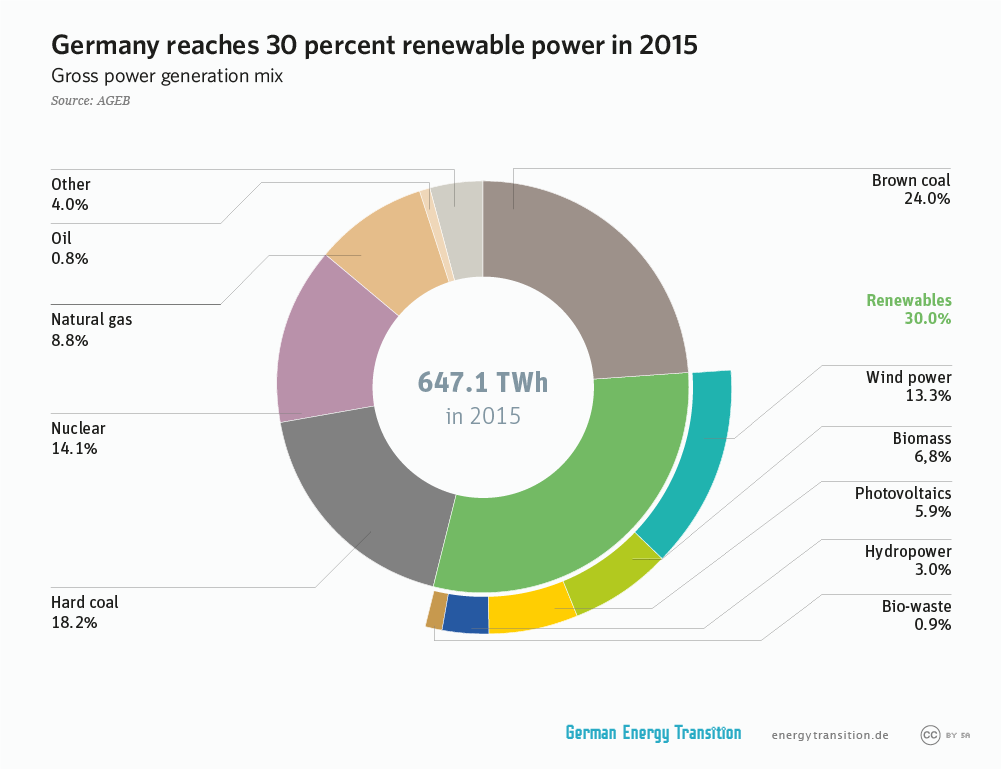
Another important achievement is that thanks to 1.5 billion euro expenses on energy research, renewables have become competitive and the power generation cost in the country shows a constant downward trend. Although, we must remark that the index of household energy prices increased since 1991, but the cost of electricity has risen less than other Energy sources, because renewables generation is today the number one source for the electric supply of the country.
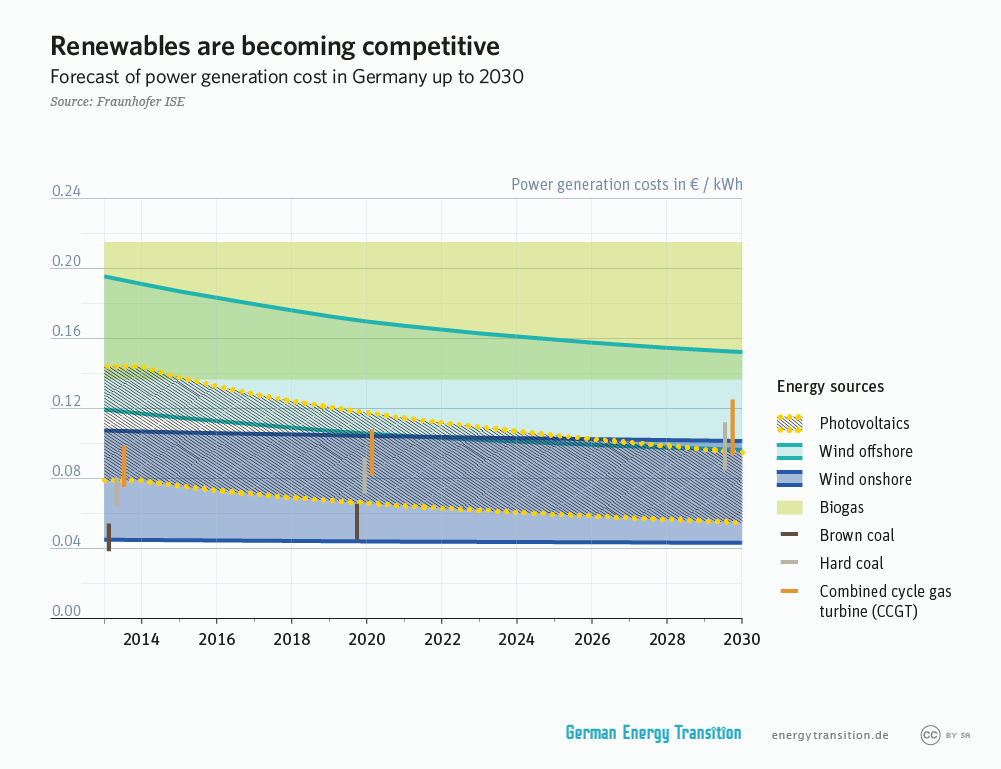
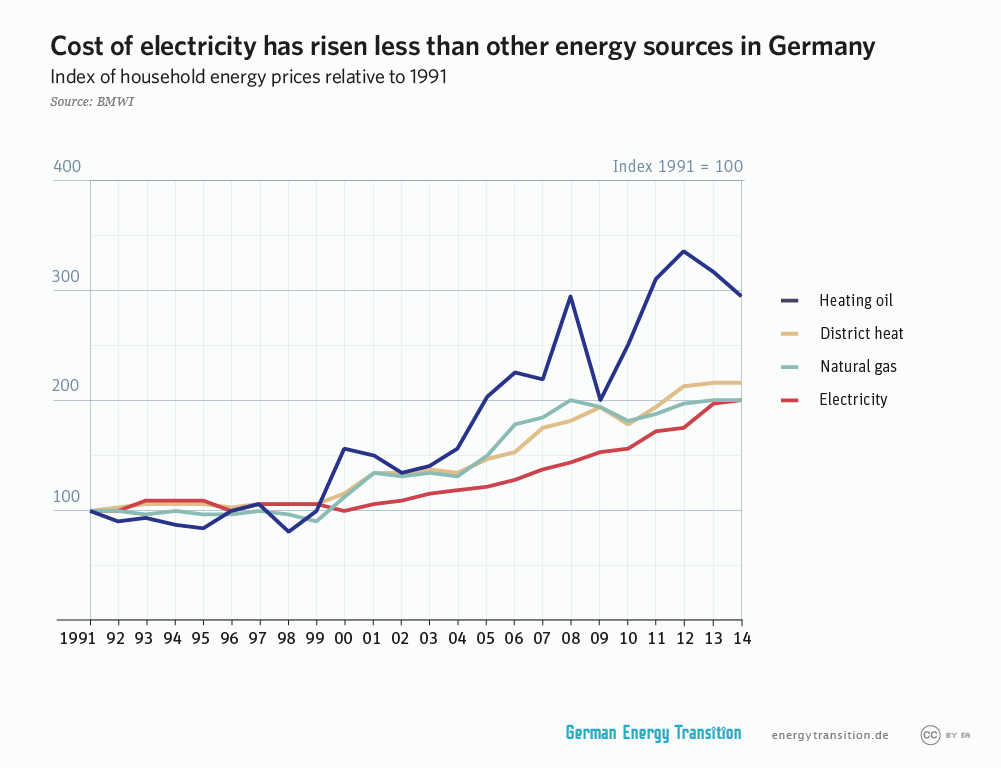
Among other thing, investing in green energy has helped Germany to reduce imports of energy significantly. The German Environmental Ministry estimated that renewable energy offset 9.1 billion euros in energy imports in 2013 alone.
However, the Energiewende has not been without critics.
Because of the renewable energy levy to finance green power investment, households have experienced an increase in the electricity unit price; the surcharge in 2016 was 22.1%. Moreover, the quick phase out of nuclear generated power has increase the coal generated electricity up to 45% in 2013, consequently boosting CO2 emissions.
Although the increment in coal and lignite demand has not been caused by the energy transition. Indeed, the progressive desertion from carbon sources has played a very little role here. The explosion of coal demand must be related to the fact that since 2002 the German export of energy increased steadily. The coal binge must be related to an overall increase in power generation and exports.
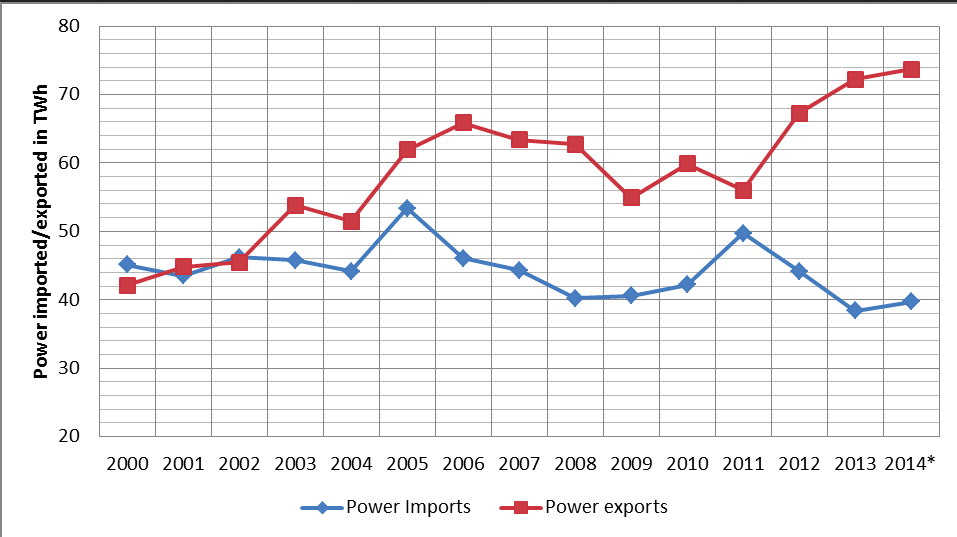
To conclude, is hard to fit everything in one article and there are many aspects we have not given voice today. Surely what has emerged is that the ambitious German plan is effective and a real energy transition is happening, without creating poverty or GDP losses for the country. The Energiewende is a coherent government policy to transform a country economically and socially, and should be replicated in other countries that are ready to take such an important step.

